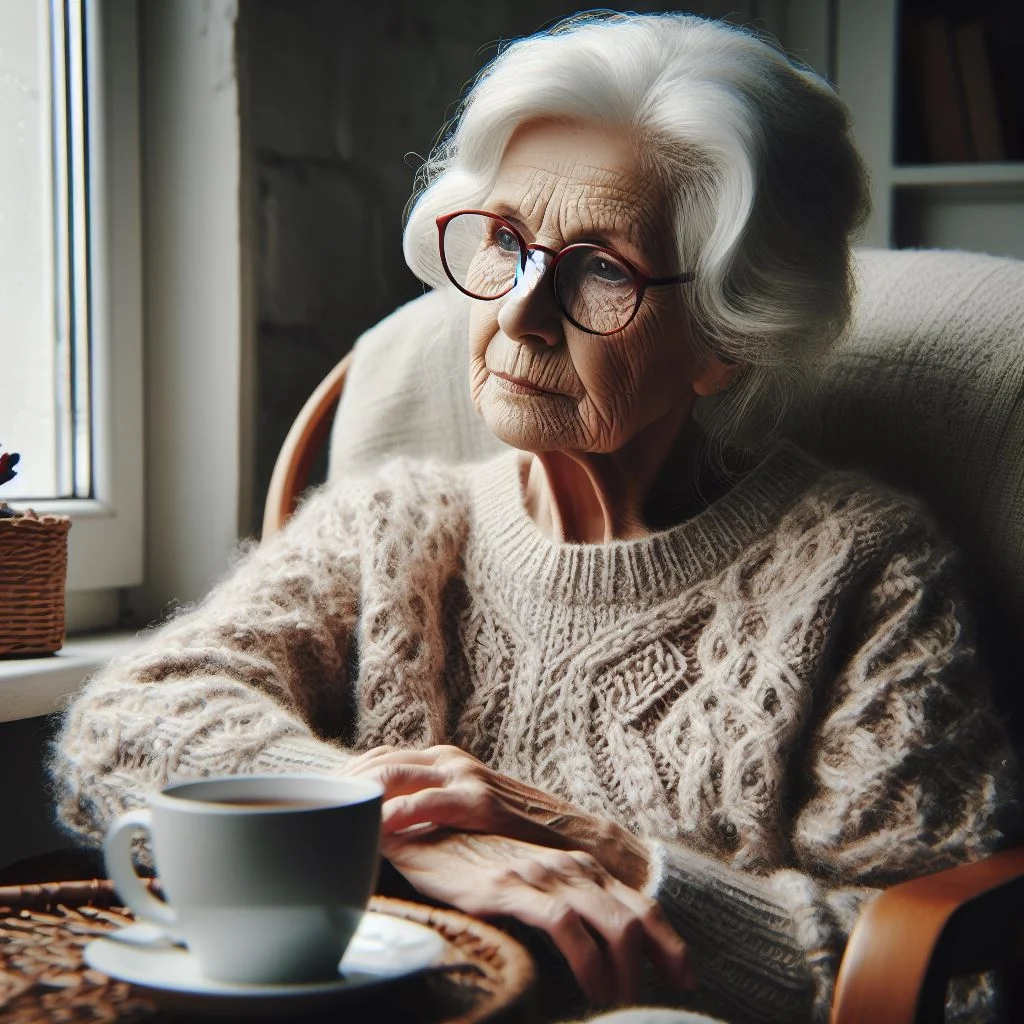Dreams involving deceased individuals are common experiences, often leaving a significant impact on those who encounter them. These dreams can evoke a range of emotions, from comfort and nostalgia to fear and confusion. Understanding the significance of such dreams requires exploring their emotional, psychological, cultural, and spiritual dimensions. This article delves into the common themes, cultural perspectives, psychological interpretations, and personal impacts of dreaming about deceased persons. It offers insights into what these dreams might signify and how to interpret them.

Table of Contents
Common Themes in Dreams About Dead People
Reunion with Loved Ones
One of the most comforting aspects of dreaming about a deceased loved one is the sense of reunion. These dreams often provide a temporary escape from the reality of loss, allowing individuals to reconnect with someone they miss dearly. The dream may present a scenario where the deceased is alive and well, engaging in familiar activities or conversations. This can be particularly soothing for those who are grieving, as it offers a moment of solace and reconnection with the person they have lost.
Unresolved Issues
Dreams about the dead can also surface when there are unresolved issues or unfinished business with the deceased. This could include things left unsaid or actions that needed to be completed before their passing. In such dreams, the deceased might be portrayed as seeking closure or resolution. For example, the dream might involve a conversation where the dreamer gets the opportunity to address unresolved matters or express emotions they were unable to share in real life.
Guidance and Messages
Another common theme is the perception of receiving guidance or messages from the deceased. Many people report dreams where the dead offer advice, warnings, or comfort. These dreams can feel profoundly meaningful, as if the deceased is attempting to communicate something essential or reassuring. For some, these messages are interpreted as signs or omens, while others view them as comforting reassurances that their loved one is watching over them.
Grief Processing
Dreams involving deceased individuals can also be part of the grief process. Such dreams may help individuals work through their emotions and come to terms with their loss. The act of dreaming about the deceased can serve as a mechanism for the subconscious mind to process grief, offering a way to deal with the pain and find emotional resolution.
Cultural and Religious Perspectives
Western Views
In Western cultures, dreams about the dead are often interpreted through psychological or emotional lenses. Freudian and Jungian theories offer different perspectives on these dreams. Freud might view them as manifestations of repressed emotions or unresolved psychological conflicts. Jung, on the other hand, might interpret them as symbols related to the collective unconscious or archetypes.
Religious interpretations also play a role in Western views. For instance, some might see these dreams as signs of the deceased’s continued presence or as a form of afterlife communication. The idea of the deceased returning in dreams to offer guidance or reassurance aligns with beliefs about the continuity of the soul and its ability to interact with the living.
Eastern Beliefs
Eastern cultures often have unique perspectives on dreams involving the deceased. In many Eastern traditions, such as Buddhism and Hinduism, dreams of the dead may be viewed through the lens of reincarnation and the ongoing cycle of life and death. These dreams might be interpreted as interactions with the spirit world or as messages from ancestors.
For instance, in particular Buddhist beliefs, dreams about the dead can be seen as opportunities for spiritual guidance or as reflections of karmic connections. Similarly, in Hinduism, such dreams might be understood as a way for departed souls to communicate or seek blessings from the living.
Indigenous Perspectives
Indigenous cultures often have rich spiritual traditions that interpret dreams of the dead in various ways. Many indigenous beliefs hold that dreams are a form of communication between the living and the spirit world. In these traditions, dreams about deceased individuals might be seen as messages from ancestors or as opportunities for spiritual guidance.
For example, some indigenous cultures believe that dreams can serve as a means for the deceased to offer wisdom or warnings to the living. These dreams are often considered significant and may be interpreted by spiritual leaders or elders within the community.
Psychological Interpretations
Freudian Perspective
Sigmund Freud’s psychoanalytic theory offers a framework for understanding dreams involving the dead. Freud might interpret these dreams as manifestations of repressed emotions or unresolved psychological conflicts. According to Freud, the appearance of a deceased person in a dream could symbolize unaddressed issues or feelings that need to be confronted.
For instance, if the dreamer had a complicated relationship with the deceased, the dream might reflect unresolved guilt, anger, or longing. Freud’s approach emphasizes the role of the unconscious mind in processing emotions and suggests that these dreams may reveal hidden aspects of the dreamer’s psyche.
Jungian Analysis
Carl Jung’s analytical psychology provides another lens through which to view dreams about the dead. Jungian theory emphasizes the role of the collective unconscious and archetypes in shaping dreams. In this context, the deceased might be seen as an archetypal figure or symbol that represents aspects of the dreamer’s inner world.
For example, the appearance of a deceased loved one in a dream could symbolize qualities or traits associated with that person, such as wisdom, protection, or nurturing. Jungian analysis also considers the possibility that these dreams reflect the dreamer’s process of integrating and understanding their own experiences and emotions.
Modern Psychological Views
Contemporary psychology offers additional perspectives on dreams involving the dead. Modern theories often focus on the emotional and cognitive aspects of dreaming. These dreams might be understood as a way for the subconscious mind to process grief, stress, or anxiety.
For example, dreams about deceased individuals might reflect the dreamer’s ongoing emotional struggles or coping mechanisms. The content of the dream, such as interactions with the deceased or the setting, can provide insights into the dreamer’s current state of mind and their approach to dealing with loss.
Spiritual Interpretations
Afterlife Communication
Many spiritual traditions and belief systems view dreams of the deceased as a form of afterlife communication. In these perspectives, such dreams are seen as a way for the deceased to reach out to the living, offering comfort, guidance, or reassurance.
For instance, some people believe that dreams about the dead serve as a means for the deceased to convey messages or express their continued presence. These dreams might be interpreted as signs that the deceased is watching over the living or that they are trying to provide support during difficult times.
Signs and Symbols
In spiritual contexts, dreams about deceased individuals are often analyzed for signs and symbols. These symbols may be interpreted as messages from the spirit world or as reflections of the deceased’s personality and characteristics.
Standard symbols in these dreams include specific objects, locations, or actions that hold personal significance for the dreamer. For example, a dream featuring a deceased person in a familiar setting or engaging in a meaningful activity might be seen as a symbolic representation of the deceased’s continued influence or presence.
Personal Testimonies
Personal testimonies often provide anecdotal evidence of the significance of dreams involving the deceased. Many people report experiencing profound and meaningful dreams where the deceased offers guidance, comfort, or reassurance.
These testimonies can vary widely, from accounts of receiving specific advice or warnings to experiences of emotional healing and closure. While these stories are subjective, they highlight the profound impact that such dreams can have on individuals and their perceptions of the afterlife.
Impact of Dreams About the Dead
Emotional Impact
Dreams involving deceased individuals can evoke a wide range of emotions. For some, these dreams offer comfort and reassurance, providing a sense of connection with the deceased. For others, they may trigger feelings of sadness, longing, or fear.
The emotional impact of these dreams often depends on the nature of the relationship with the deceased and the context of the dream. Positive or comforting dreams help individuals process their grief and find solace, while disturbing or unsettling dreams highlight unresolved issues or anxieties.
Healing and Closure
Dreams about the dead can play a role in the healing process by providing opportunities for emotional resolution and closure. For those who are grieving, these dreams might offer a sense of reconciliation or completion, helping them come to terms with their loss.
In some cases, dreams involving the deceased might facilitate a sense of closure by addressing unresolved issues or offering reassurance. This can be particularly valuable for individuals who struggle with feelings of guilt or regret related to the deceased.
Disturbing Dreams
Not all dreams about the dead are positive or comforting. Some individuals may experience nightmares or unsettling dreams involving deceased persons. These dreams might evoke fear, anxiety, or distress and may reflect underlying psychological or emotional issues.
Coping with disturbing dreams can involve:
- Exploring their content and context.
- Seeking professional support.
- Addressing any unresolved feelings or concerns related to the deceased.
Understanding the potential triggers for these dreams can help individuals navigate their emotional responses and work through any underlying issues.
Interpreting Your Dreams
Keeping a Dream Journal
One effective way to interpret dreams involving deceased individuals is to keep a dream journal. Recording the details of your dreams helps you identify patterns, themes, and symbols that provide insights into their meaning.
When journaling, consider noting the emotions you felt during the dream, the actions or events that occurred, and any significant symbols or messages. This can help you gain a deeper understanding of the dream’s significance and how it relates to your personal experiences and emotions.
Seeking Professional Guidance
If you find that dreams about the deceased are causing significant emotional distress or confusion, seeking professional guidance might be helpful. Therapists or counselors can provide support in exploring the underlying meanings of these dreams and addressing any related psychological or emotional issues.
Professional guidance can also help you navigate the grieving process and work through any unresolved feelings or concerns. A trained therapist can offer tools and techniques for managing emotional responses and finding resolution.
Personal Reflection
Interpreting dreams about deceased individuals often involves personal reflection and self-exploration. Consider how the dream relates to your own beliefs, experiences, and emotions. Reflect on the relationship you had with the deceased and any unresolved issues that might be influencing the dream.
Personal reflection can help you find meaning and significance in your dreams, offering insights into how they relate to your current state of mind and emotional well-being.
Conclusion
Dreaming of a deceased person can be a deeply emotional and complex experience. These dreams can offer comfort, guidance, or insight, reflecting a range of personal and cultural perspectives. Understanding the common themes, artistic interpretations, and psychological and spiritual dimensions of these dreams can help individuals navigate their emotional responses and find meaning in their experiences.
Whether viewed through a psychological, cultural, or spiritual lens, dreams about the dead provide an opportunity for connection, healing, and self-discovery. By exploring these dreams and reflecting on their significance, individuals can gain a deeper understanding of their own emotions and experiences, ultimately finding solace and resolution in the face of loss.
Dreams Of Dead People Hidden Meanings
Dreams, those enigmatic journeys into the depths of our subconscious, often leave us with vivid imagery and lingering emotions. Dreaming of someone who has passed away can be a compelling experience, stirring up a mix of grief, comfort, and confusion. But what do these dreams indeed mean?

Beyond the Literal
While it might seem like a straightforward encounter with the deceased, dreams of dead people are rarely about a literal visit from the spirit world; instead, they offer symbolic messages and reflections of our inner state. They can be a way to process grief, unresolved emotions, or even hidden anxieties.
The Emotional Landscape
The emotions you experience in the dream can be a crucial starting point for interpretation. Were you happy, sad, scared, or something else entirely? Feeling happy or peaceful during a dream with a deceased loved one might indicate acceptance and a sense of closure. However, sadness, fear, or anger could suggest unresolved issues or lingering grief.
The Relationship with the Deceased
The nature of your relationship with the deceased person in the dream can also offer clues. Was it a close family member, a friend, or even someone you barely knew? Dreaming of a deceased parent might symbolize feelings of loss, a search for guidance, or a yearning for the security they once provided. A deceased friend could represent a lost connection or a reminder of a past chapter in your life.
The Context of the Dream
The setting and events of the dream can provide valuable context. Where did the encounter take place? Was it a familiar location or a strange, dreamlike landscape? The setting can reflect your emotional state. A familiar place might represent comfort and a sense of connection, while a peculiar location could symbolize feelings of uncertainty or a new phase in your life.
The Actions and Dialogue
What did you and the deceased person do or say in the dream? Did they offer advice or comfort? Were you arguing or unresolved issues resurfacing? The actions and dialogue can hold significant meaning. Receiving advice or comfort from a deceased loved one might represent a subconscious desire for guidance or a longing for wisdom. Arguments or unresolved issues could indicate a need for closure or a lesson you haven’t yet learned.
Different Interpretations of Dreaming About Dead People
Here are some general interpretations of dreams about dead people, but remember, the most accurate meaning will depend on the specific details of your dream and your life situation:
- Processing Grief: These dreams can be a natural part of the grieving process, allowing you to express emotions and come to terms with the loss.
- Unresolved Issues: The dream might be a way for your subconscious to address unfinished business or unresolved conflicts with the deceased.
- Seeking Guidance: Dreaming of a deceased mentor or authority figure could represent a desire for guidance or a reminder of their values.
- Life Transitions: The deceased person might symbolize an ending or a new beginning in your life.
- Fear of Death: A dream about a dead person you don’t know well could be a reflection of your anxieties about mortality.
Cultural Considerations
Cultural beliefs can also influence dreams. In some cultures, dreaming of the deceased is seen as a way for them to communicate with the living. In others, it might be interpreted as a bad omen.
Remembering Your Dreams
To gain the most from your dreams of dead people, it’s important to remember them clearly. Here are some tips:
- Keep a dream journal: Jot down your dreams as soon as you wake up before the details fade.
- Set the intention to remember your dreams: Before going to sleep, tell yourself that you will remember your dreams vividly.
- Pay attention to recurring themes. If you find yourself repeatedly dreaming about a specific deceased person, it might be a sign that you need to address an underlying issue.
Finding Closure
By understanding your dreams of dead people, you can gain valuable insights into your emotional state and unresolved issues. These dreams can be a way to process grief, find closure, or receive guidance from within. If your dreams are causing distress or anxiety, consider talking to a therapist who can help you process the emotions they evoke.
Remember, dreams are a personal language. The most accurate interpretation will come from considering the details of your specific dream and how it relates to your own life experiences.
